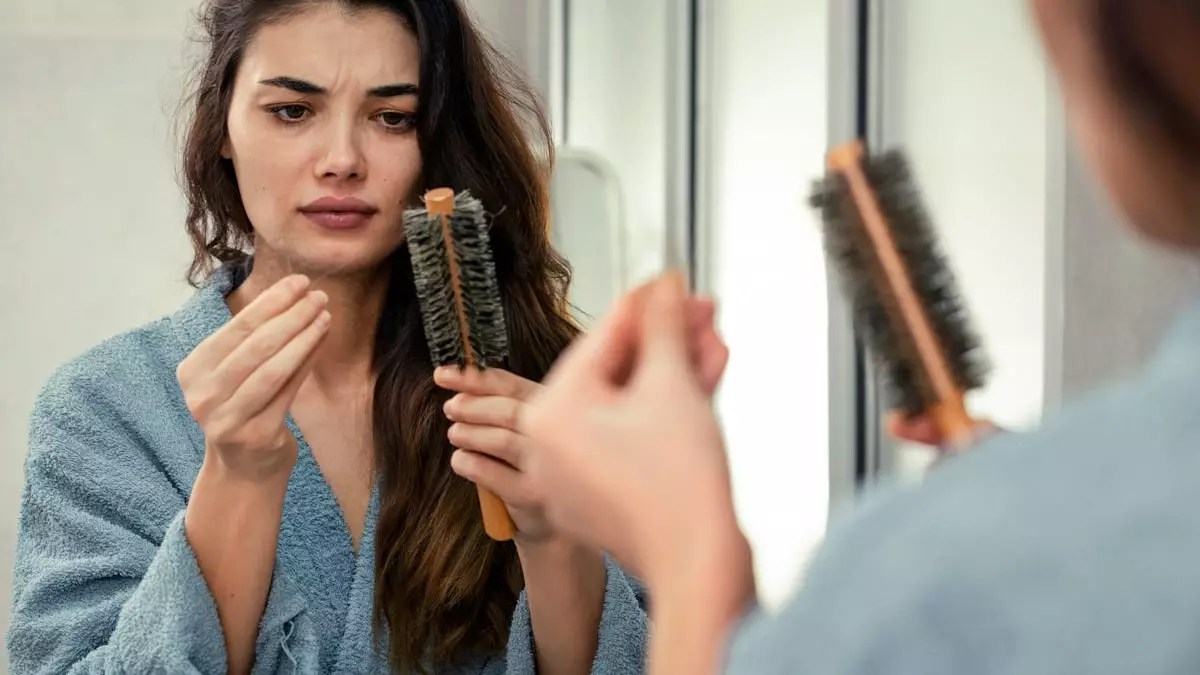Weight loss medications like Mounjaro have gained significant attention for their effectiveness in managing blood sugar levels and promoting weight loss. As searches for “Mounjaro hair” see an extraordinary increase of over 250% within just a few months, it’s crucial to dissect the implications of this trend. Users have actively begun to share their personal experiences on platforms like TikTok, where reports of hair thinning and shedding post-Mounjaro initiation have generated a wave of concern. This dialogue provides an essential lens through which we can better understand both the therapeutic benefits and the potential side effects associated with rapid weight loss and appetite suppression.
The Underlying Mechanisms of Hair Loss
While Mounjaro itself is not explicitly linked to hair loss, the context of weight loss it creates can set off a cascade of physiological changes that disturb normal hair growth. The core issue is rapid weight loss, which often triggers the body’s stress response. In a state of caloric deficit or when faced with sudden weight fluctuations, the body instinctively prioritizes vital functions essential for immediate survival— and unfortunately, hair growth is not among them. This can lead to a greater proportion of hair follicles entering the telogen or resting phase, increasing shedding.
Moreover, it’s essential to consider how appetite suppression impacts nutrition. Individuals experiencing decreased hunger may not consume enough key nutrients like protein, iron, or essential fatty acids. These are critical for maintaining robust hair health, yet they can become overlooked in a hurried quest for weight loss. Additionally, hormonal fluctuations that frequently accompany weight loss can disproportionately affect women, especially those with underlying health conditions like polycystic ovary syndrome (PCOS) or hypothyroidism.
Strategies for Supporting Hair Health
While many users may be grappling with hair loss concerns, the good news is that effective strategies exist to counteract these effects while continuing with Mounjaro. Here are five crucial practices that can help bolster hair health during this transition.
First, the foundation of healthy hair growth lies in a balanced intake of nutrients. Prioritizing high-quality protein sources such as eggs, fish, legumes, and lean meats is critical. Protein is the building block of hair; without sufficient intake, hair can become weak and prone to excessive shedding. Equally significant is the inclusion of healthy fats found in foods like olive oil, avocados, and nuts, which support hormone production crucial for hair vitality.
Second, we cannot ignore the role of stress in hair loss. Transitioning to a new medication that alters your appetite and lifestyle can inherently be stressful. Stress raises cortisol levels in the body, which negatively affects the hair cycle. Conscious efforts toward stress management—like incorporating mindfulness practices, yoga, or ensuring sufficient restorative sleep—are essential. Aim for 7–9 hours of quality sleep each night to enable tissue regeneration and hormone regulation.
Additionally, when hair feels fragile, gentleness is vital. Avoiding aggressive grooming methods, like tight hairstyles and heat exposure, can minimize breakage. Switching to sulfate-free products can also protect hair from further damage, while using a wide-toothed comb can help detangle strands without causing unnecessary friction.
Hydration, another critical but often overlooked component, deserves attention. Mounjaro may suppress thirst cues, potentially leading to decreased water intake. Dehydration can hinder blood flow to the scalp, inhibiting the nutrients necessary for hair health. Setting reminders to drink adequate amounts of water—ideally 1.5 to 2 liters daily—can foster a healthier environment for hair growth. Furthermore, replenishing electrolytes through sources like fruits and vegetables can aid in optimal hydration.
Lastly, consider adding collagen-rich foods to your diet, such as bone broth, citrus fruits, and berries. Collagen is pivotal for scalp health, but stress and nutrient deficiencies can impede the body’s ability to produce it. Using collagen supplements may also provide added benefits.
Innovative Treatments for Enhanced Hair Health
For those seeking advanced solutions, newer technologies like RF microneedling are stepping into the spotlight. Sylfirm X combined with Morphiya introduces a non-invasive approach that merges radiofrequency with exosome therapy, enhancing blood circulation to the scalp. This method activates dormant hair follicles and promotes growth by delivering essential nutrients directly to the scalp.
Founder Boris Hodakel of We Are Feel emphasizes that the dialogue surrounding hair loss must evolve. While often framed as predominantly a male concern, nearly 40% of women will face hair loss at some stage in their lives. It’s time society dispels the stigma and begins to support individuals experiencing this challenge, thereby fostering a more inclusive and understanding narrative. Targeting perceptions surrounding hair loss not only enhances individual experiences but also encourages a broader awareness of the multifaceted nature of hair health.


Leave a Reply